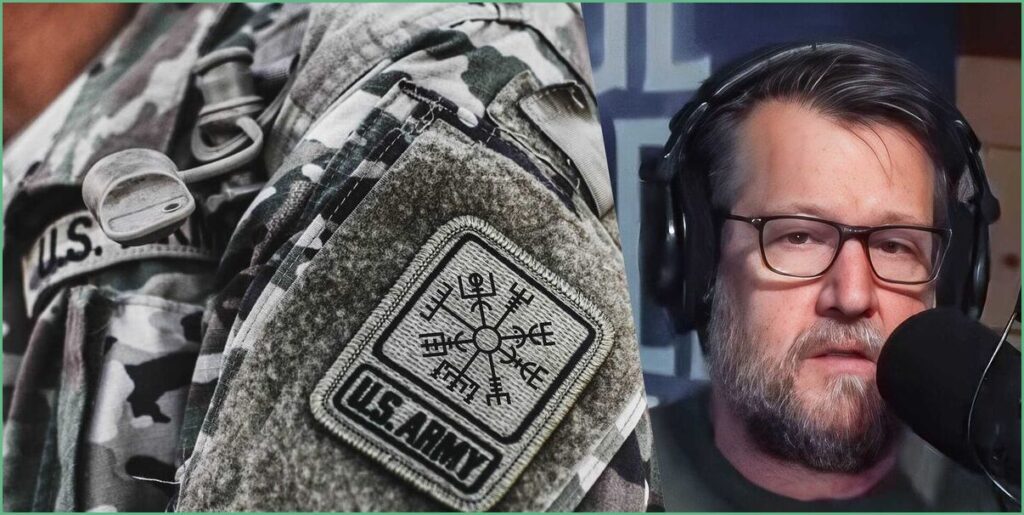Two recent mass shootings have left communities reeling and questions piling up about the men who carried them out. On September 27, 40-year-old marine veteran Nigel Max Edge opened fire from a boat into a crowd at the American Fish Company waterfront bar in Southport, North Carolina, killing three people and injuring eight others before fleeing and being arrested. The very next day, Thomas Jacob Sanford, also a 40-year-old Marine veteran from Burton, Michigan, opened fire on a Church of Jesus Christ of Latter-day Saints meetinghouse in Grand Blanc Township, Michigan, killing four people and injuring eight others before being killed by police.
These incidents shock us because veterans are meant to be defenders, not predators, and the pattern deserves sober attention. People naturally hunt for explanations when calamity strikes, and faith and culture inside the military have become part of that conversation. Conservatives, especially those who value faith and order, are rightly unsettled by the idea that the military’s spiritual climate might be shifting in ways that matter.
Rick Burgess, host of the BlazeTV podcast “Strange Encounters,” has been drawing a bright line around this worry for some time. He warns bluntly that “Our military is becoming more and more secular and more and more unfriendly to the Christian faith.” That sentence lands hard for anyone who believes religious conviction has been a steadying force in American service for generations.
Burgess traces part of the trend to a cultural pivot inside some ranks that favors alternative spiritualities over traditional Christianity. He tells of a conversation with a trainer who once served in the military and observed a move away from Christian markers toward Norse-themed symbols. That anecdote is a red flag for listeners who equate spiritual anchors with moral restraint.
For clarity, Norse paganism, also called heathenism, is an ancient polytheistic faith rooted in the customs of Scandinavian and Germanic peoples. It centers on figures like Odin, Thor, and Freyja, and it involves rituals, cosmology, and tales about Valhalla and the afterlife. The revival of such imagery in modern subcultures is not inherently criminal, but it does change the language and symbols young warriors carry with them.
Burgess points out what he sees as a disturbing symptom. “A lot of the people in the military are beginning to wear tattoos of these Viking gods. … They’re now looking at themselves as warriors that are pleasing these gods of war, as opposed to serving their country under the authority of the one and only living God,” he says. Those exact words reflect a worry that identity and purpose are shifting away from service to nation and toward a more mythic, individualistic warrior ethos.
He goes further, not softening the claim. “It’s very concerning. Why? Because these Scandinavian gods don’t exist. This mythology is false. So really, if you’re worshipping these things, and you’re building these little altars and you’re practicing these things, what you’re really worshipping are demons,” he says frankly. That is a forceful religious judgment, and conservatives who prize biblical faith will hear it as both theological critique and a cultural alarm.
Burgess connects spiritual drift to violent outcomes in a way that demands investigation rather than dismissal. “When I keep seeing these former military people turning into cold-blood killers against civilians, it makes me wonder: Did they participate in [paganism] when they were in the military?” he asks. That question does not claim causation, but it insists that correlations deserve scrutiny, reporting, and action.
We should treat the question seriously without jumping to simplified answers or scapegoats. Mental health problems, access to weapons, traumatic brain injuries, failed reintegration, and lack of robust veteran support all shape the risk of violence after service. But culture and ideology inside institutions can influence behavior too, especially when combined with the intense training and desensitization that comes with combat preparation.
From a conservative perspective, the right response is twofold: restore faith and discipline while improving accountability and care. That looks like re-centering chaplaincy and religious accommodation for mainstream faiths, not censoring personal expression, and redoubling mental health services tailored to veterans. It also means the military must be transparent about any spiritual movements or practices that undermine unit cohesion or encourage nihilistic violence.
Community leaders and policymakers should press for clear data rather than rumors, because policy made from panic only breeds more problems. Lawmakers can require reporting on religious and cultural trends inside units and fund research into whether certain belief systems correlate with misconduct. At the same time, Congress should expand programs that help veterans transition back into family life, jobs, and stable spiritual communities.
There is a moral and practical stake in this debate that transcends party talking points. If a culture shift inside the military is contributing to tragic outcomes, conservatives must lead with pragmatic fixes that protect civilians and honor veterans. If the concern is exaggerated, robust study and constructive outreach will expose that and restore confidence in our armed forces.
Either way, the families of the victims in North Carolina and Michigan deserve answers and action, not bland reassurances. The nation owes veterans a twofold duty: to defend them while they serve and to care for them when they return. If faith, identity, and support structures influence whether that duty is fulfilled, then we should confront those questions directly and without apology.
n
h/t: The Blaze
n
